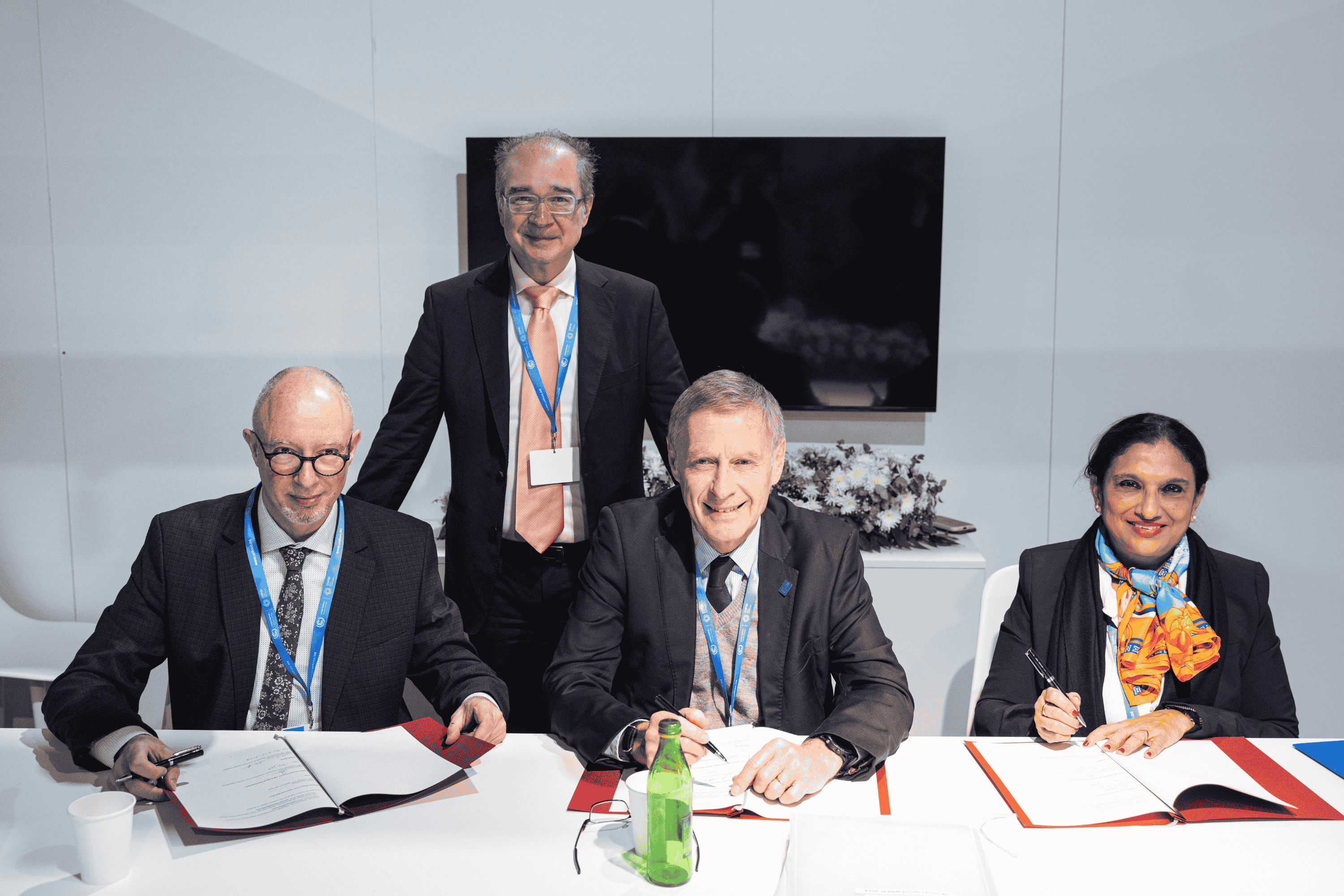IFAD, World Bank and GAIN scale up efforts to bolster transparency in food systems financing

Left to right: Saul Morris, Director of Programme Services at GAIN; Stefanos Fotiou, Director of the UN Food Systems Coordination Hub; Donal Brown, Associate Vice-President, Department for Country Operations at IFAD; Shobha Shetty, Global Director for Agriculture and Food at the World Bank.
©Parviz Gasimzade
Baku, Azerbaijan, 20 November, 2024 – The International Fund for Agricultural Development (IFAD) and the World Bank (WB) announced at a COP29 event that they would join forces with the Global Alliance for Improved Nutrition (GAIN) to scale up access to a tool to track financing for food systems transformation. As an integral part of the work plan 2024-2026 of the UN Food Systems Coordination Hub, this expansion was formalized through a new Letter of Intent (LoI) between IFAD, WB and GAIN and marked a strong commitment to enhancing transparency and accountability in food systems financing. Building on the successful piloting of its methodology, the scale-up process will support 11 countries in implementing the 3FS.
High-quality financial data are a basic requirement for impactful investment to transform food systems, as well as an important prerequisite for drawing political attention to financial gaps. Yet often this basic data is lacking. The Financial Flows to Food Systems (3FS) tool launched in 2023 provides decision-makers and stakeholders with an evidence base of national and global data on domestic public, private sector and international development financing for food systems, thereby removing a critical obstacle to creating more sustainable, equitable, and resilient food systems for the future.
Estimates of the costs of ending hunger to the global cost of transitioning to high-performing food systems vary, and range between US$33 billion and US$350 billion per year. No matter which estimate is used, currently no one knows how much is mobilized to finance the world’s transition to higher-performing food systems. That’s why it is important to extend the use of the 3FS.
“With the 3FS tool, we’ll have a much clearer picture of where resources are going, which helps everyone from local governments to international agencies make better investment decisions,” said Saul Morris, Director of Programme Services at GAIN.
“The 3FS tool provides countries and partners with clear insights into where financial resources are directed within food systems,” said Stefanos Fotiou, Director of the UN Food Systems Coordination Hub. “This information is essential for making informed decisions and addressing the financing needs identified by National Convenors responsible for these efforts in their countries.”
Donal Brown, Associate Vice-President, Department for Country Operations at IFAD, highlighted the importance of the partnership between IFAD, the WB and GAIN in helping additional countries close financial gaps that have stalled food systems progress. “IFAD and partners will not only improve data-driven decision-making but also enhance the credibility and visibility of the countries involved, attracting more international support to drive impactful, sustainable change in their food systems.” he said.
Shobha Shetty, Global Director for Agriculture and Food at the World Bank, emphasized the importance of understanding the convergence of various financing sources: “We need all hands on deck to finance the transformation of the food system at scale—from public expenditures and philanthropic finance to private capital. Grasping how these intersect is complex, and the 3FS tool is rapidly helping to untangle this complexity.”
The ceremony also featured remarks from supporting partners, including the Asian Development Bank (ADB) and AGRA - Sustainably Growing Africa’s Food Systems. Both organizations expressed strong support for the 3FS initiative and its role in closing the financial gaps for food systems transformation.
As the next UNFSS+4 approaches, expanding access to tools that track progress is more crucial than ever to accelerate transformative action for food systems and drive systemic change.
About the partnership behind the 3FS
The 3FS is a financial tracking tool co-developed by IFAD and the World Bank in collaboration with the UN Food Systems Coordination Hub created to address a critical gap in data on food systems financing. It leverages the expertise and instruments of the Ecosystem of Support, composed of experts from the Inter American Institute for Cooperation on Agriculture (IICA), the Global Alliance for Improved Nutrition (GAIN), the Food and Agriculture Organization (FAO), the Organization for Economic Cooperation and Development (OECD), the African Agricultural Transformation Initiative (AATI), McKinsey & Company, Scaling Up Nutrition (SUN), AGRA - Sustainably Growing Africa’s Food Systems, AKADEMIYA2063, the Good Food Finance Network (GFFN), and the 4SD foundation.
